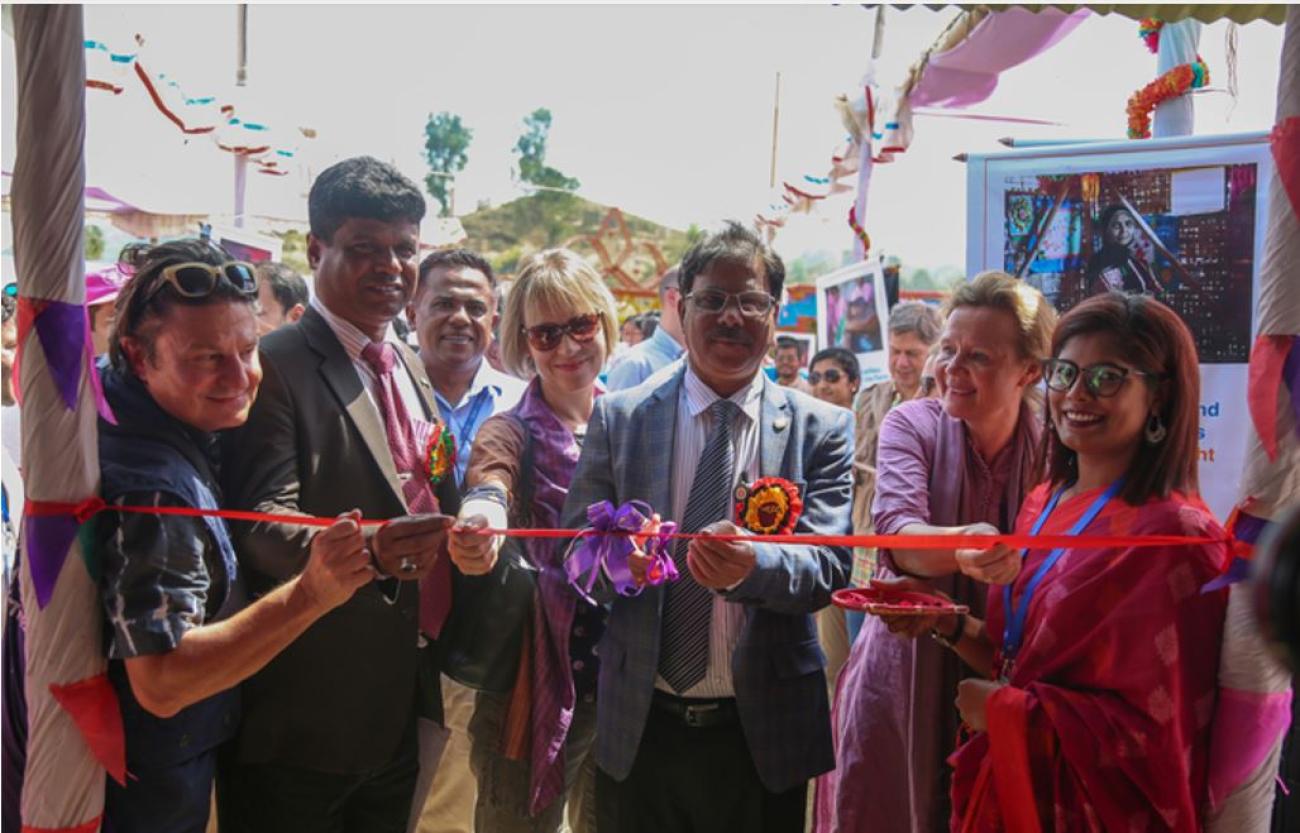Ten Women-Led Community Centers (Seven for Rohingya refugees, two for host community, one mixed) are being added to the 20 UNFPA Women Friendly Spaces (17 for Rohingya refugees, two for host community, one mixed) serving the camps and host communities, which have reached over 135,000 women and girls since August 2017, providing them access to midwifery and other important services for protection and well-being. With technical support from UNFPA and WFP, the non-government organization Gana Unnayan Kendra (GUK) is implementing the WLCC project.
Other UN and civil society partners are also offering similar skill-based programmes and training opportunities, to help amplify the impact of this approach, including UN Women, BRAC and UNICEF. Representatives from these and other organizations attended the inaugural ceremony and shared their experiences and willingness to work together to improve the lives of the refugees and host communities alike.
Aynul Kabir, Additional Secretary, Bangladesh Ministry of Women and Children’s Affairs, congratulated the UN and partners, requesting more partnerships like this to build skills and benefit women and girls along with men and boys.
“This joint project brings together UNFPA’s expertise in addressing gender-based violence and supporting women and girls throughout the camps, along with WFP’s demonstrated expertise in implementing livelihood projects through these centers,” said Asa Torkelsson, UNFPA Representative in Bangladesh.
The centers will also allow men and boys to participate, as well as provide local Bangladeshi host communities with an open space for cultural events, Torkelsson noted in the inauguration ceremony for the launch event held on 4 March, 2019.
“Women and teenage girls in the refugee and host communities generally have very few opportunities to become self-sufficient. This is a concern for WFP as they often bear the brunt of food insecurity and other deprivations at the household level and have less to eat as access to food is difficult,” explained Richard Ragan, Country Director for WFP in Bangladesh.
Mia Seppo, UN Resident Coordinator in Bangladesh, thanked the Government and donors for their generous support, calling the project a good example of the “UN working as one.”






